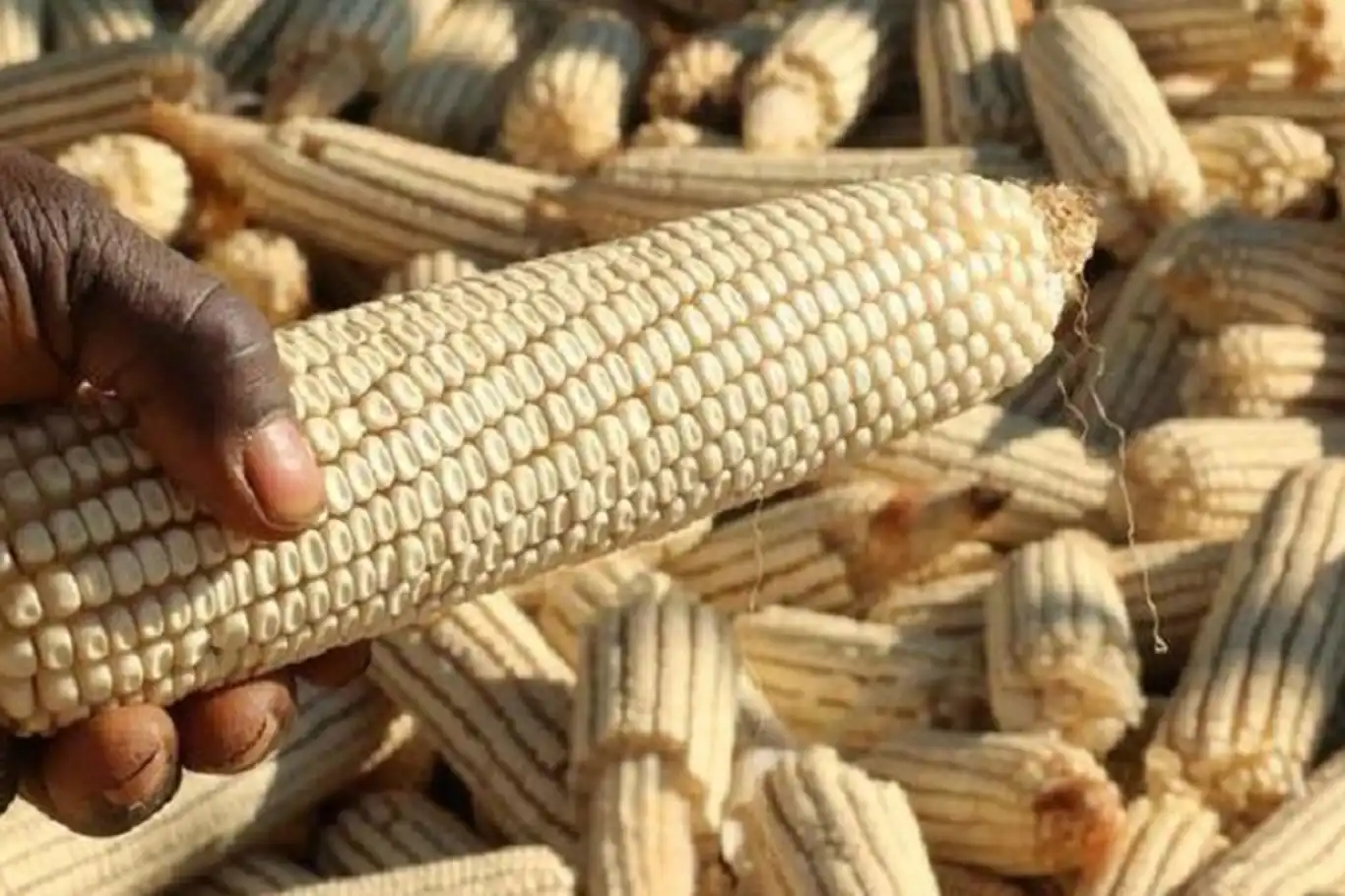Malawi faces deepening hunger crisis as 4 million confront acute food insecurity


Around 4 million people in Malawi are facing acute food insecurity, with conditions expected to persist until at least March 2026, according to the latest figures from the Malawian government.
The crisis—driven by erratic rainfall, low crop yields, and economic hardship—has prompted the government to introduce strict maize export restrictions to preserve national food reserves, the Ministry of Trade confirmed on Thursday.
President Peter Mutharika, who was sworn in for a new term in October 2025 after a stunning political comeback, has declared a state of disaster and pledged to ensure that “no citizen will die of hunger under my watch.”
Speaking at his inauguration ceremony at Kamuzu Stadium in Blantyre, Mutharika said: “Our nation is in crisis. There is no food. But we will fix this country. I do not promise milk and honey, but hard work.”
The 85-year-old leader appealed to the international community for partnerships and investments, stressing that Malawi seeks “collaboration, not handouts,” to build long-term food security and resilience.
Malawi, a landlocked nation in southeastern Africa, remains one of the world’s poorest countries, with about 75% of the population living below the World Bank’s poverty line of $3 per day. According to the same estimates, half of Malawians fail to meet daily nutritional requirements, placing millions—especially children—at risk of chronic malnutrition.
The 2025 agricultural season was devastated by a combination of prolonged droughts and localized flooding, attributed to El Niño-induced climate fluctuations. The UN Food and Agriculture Organization (FAO) and the World Food Programme (WFP) have both warned that Malawi’s food crisis is among the most severe in southern Africa, with maize production down by nearly 40% compared to the previous year.
WFP officials have begun coordinating emergency food distributions to the worst-affected districts, including Nsanje, Chikwawa, and Machinga, where families are already resorting to skipping meals or selling household assets to survive.
Malawi’s current situation draws painful parallels with its worst famine in 2002, which struck over 75% of the population and led to the deaths of more than 500 people due to starvation and hunger-related diseases. That crisis triggered widespread policy reforms in the agricultural sector, including fertilizer subsidies and irrigation projects—but years of economic hardship and recurring droughts have eroded those gains.
International aid agencies are now urging swift action to prevent famine. The UN Office for the Coordination of Humanitarian Affairs (OCHA) estimates that Malawi will require over $200 million in food aid and agricultural recovery assistance to stabilize conditions through early 2026.
“The situation in Malawi is a stark reminder that climate shocks are pushing millions of vulnerable families to the brink,” said one humanitarian coordinator. “Without urgent support, the coming months could bring widespread hunger and suffering.”
As Malawi braces for what could become its most serious food emergency in decades, President Mutharika has vowed to prioritize agricultural reform, irrigation expansion, and investment in rural livelihoods to reduce dependence on rain-fed farming.
“We cannot beg our way out of hunger,” he said. “We must work our way out of it—with dignity, unity, and faith.” (ILKHA)
LEGAL WARNING: All rights of the published news, photos and videos are reserved by İlke Haber Ajansı Basın Yayın San. Trade A.Ş. Under no circumstances can all or part of the news, photos and videos be used without a written contract or subscription.
A Palestinian farmer and four international solidarity activists were injured on Saturday after a violent attack by Israeli settlers in the village of Burin, south of Nablus, in the occupied West Bank.
United Nations human rights experts have accused Sudan’s Rapid Support Forces (RSF) of committing mass atrocities, including widespread killings, rape, and other forms of sexual violence against women and girls in El Fasher, the capital of North Darfur.
Tunisia’s opposition has launched a new wave of protest against President Kais Saied’s authoritarian rule, as several prominent figures, including Rached Ghannouchi, announced they are going on hunger strike in solidarity with Jawhar Ben Mbarek, a jailed political figure whose health has sharply declined after more than nine days without food.
The African Union Commission (AUC) has voiced firm support for Nigeria’s sovereignty, religious freedom, and rule of law, rejecting recent statements by the United States that accused Nigeria of complicity in attacks against Christians and hinted at possible military intervention.